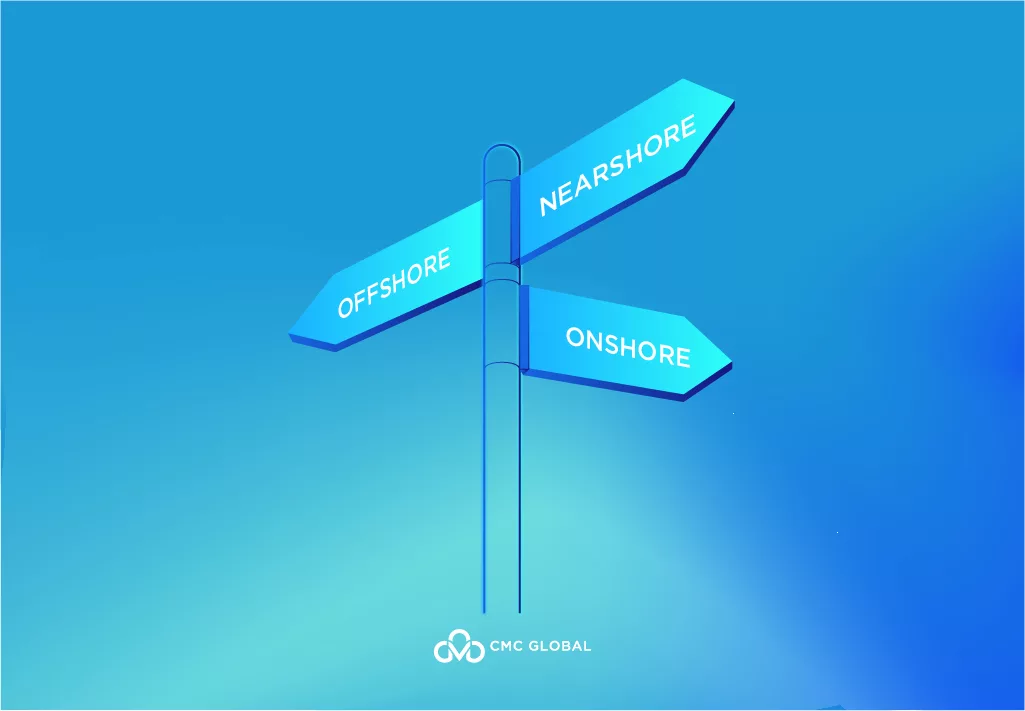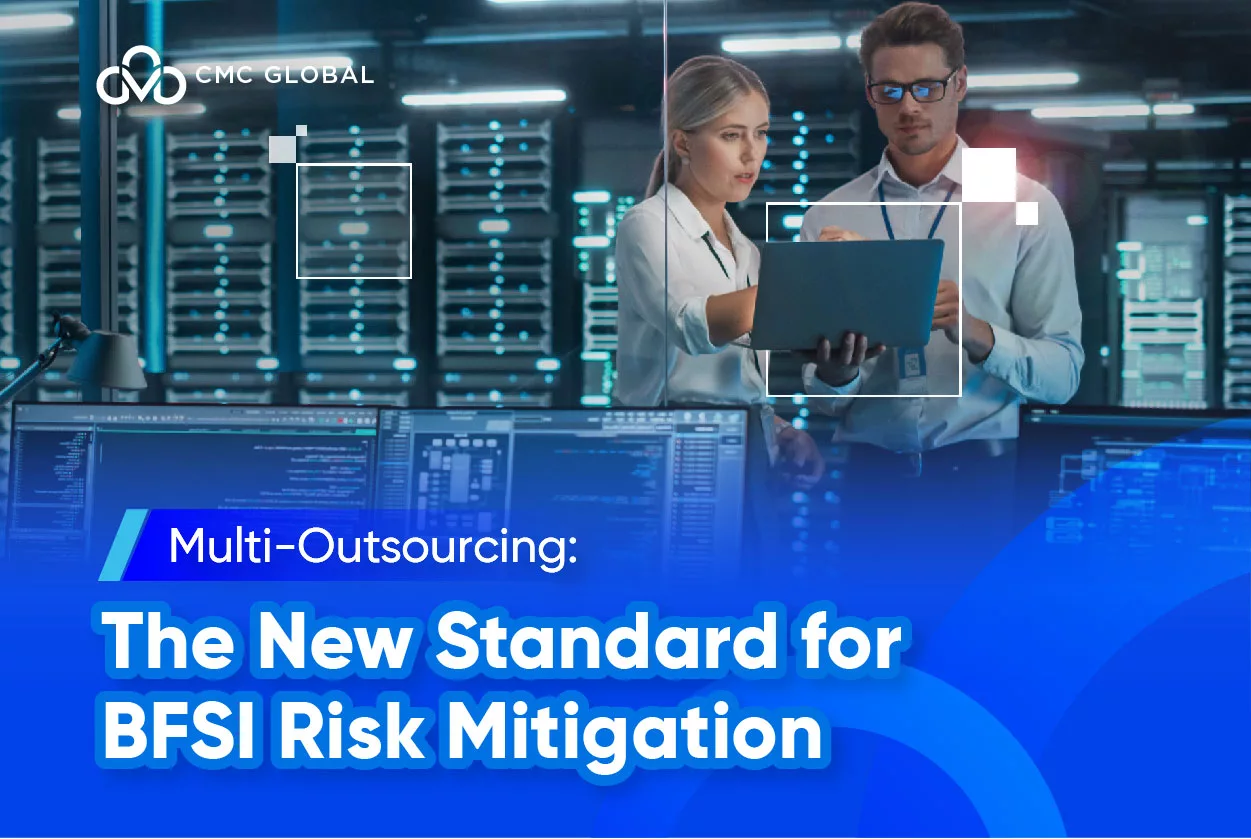From Tactical Fix to Critical Infrastructure
In 2025, IT leaders in the UK’s financial sector face a perfect storm: talent pipelines are strained, regulatory scrutiny is intensifying, and operational resilience has become a board-level agenda item. Against this backdrop, the traditional single vendor outsourcing model is showing signs of strain.
New regulations like the PRA’s SS2/21 Operational Resilience framework, increasing AI adoption, and ongoing geopolitical instability have forced decision-makers to re-evaluate outsourcing not just as a cost-saving mechanism—but as a strategic foundation for business continuity and speed.
Single-Vendor Constraints: What the Numbers Tell Us
Reliance on a single outsourcing partner—especially in a single geography like India—can introduce multiple points of failure:
- 76% of board members now rank geopolitical instability and supply chain disruption as top external risks impacting long-term strategy (PwC, 2024)
- 58% of UK firms report delays due to resource strain in single-vendor setups and constrained in transformation-critical projects like AML and customer onboarding. (Orange Cyberdefense, 2025)
- 40% of Tier 1–2 banks failed resilience testing under PRA’s SS2/21
These figures show that relying on one provider—however established—creates fragility in an era demanding flexibility, speed, and accountability.
Multi-Outsourcing: Unlocking Scalable Talent Access in BFSI
Multi-outsourcing—partnering with multiple vendors across different regions—is no longer a tactical adjustment but a future-proofing strategy for financial institutions.
For CIOs and CTOs under pressure to simultaneously modernize tech infrastructure, strengthen operational resilience, and meet stringent PRA/FCA regulatory demands, multi-outsourcing provides a modular, scalable blueprint:
- Risk segmentation by design: Diversifying vendors geographically and technologically limits systemic exposure to single-point failures, whether geopolitical or cyber-related.
- Agile capacity scaling: With demand volatility across projects (AML, KYC modernization, digital onboarding), regional vendors enable faster ramp-up/ramp-down aligned to product timelines.
- Targeted compliance alignment: Assigning vendors by jurisdiction (e.g. UK PRA-compliant partner for reporting, APAC delivery for engineering) ensures that regulation is embedded in delivery, not retrofitted.
- Tech depth via specialization: Modern BFSI transformation now spans AI/ML, cloud migration, DevSecOps, and real-time analytics—capabilities rarely mastered by a single provider. Multi-outsourcing makes it feasible to engage niche experts where they’re strongest.
Expanding the Talent Universe: Why Vietnam Fits the Strategy
Vietnam has emerged as a strategic anchor for BFSI firms looking to operationalize multi-outsourcing beyond theory.
It addresses the core issues UK financial institutions face: lack of IT capacity, regulatory tension, delivery inflexibility, and growing cost pressure.
Here’s why Vietnam stands out:
- Depth of technical expertise: With over 60,000 IT graduates annually and a national AI strategy in place, Vietnam is quickly becoming a hub for high-skill roles in DevSecOps, AI engineering, and data modernization.
- Regulatory compatibility: Vietnam offers a stable legal environment for data handling and cross-border collaboration, making it an ideal fit for PRA and GDPR-aligned delivery models.
- Follow-the-sun efficiency: Its favorable time zone overlap with the UK enables real-time development handover, accelerating DevOps cycles and reducing downtime.
- Cost-to-value advantage: Vietnam delivers high engineering output at competitive rates, enabling sustained innovation at scale.
- Proven security frameworks: Many Vietnamese IT providers, including CMC Global, are ISO 27001 and SOC 2 certified, with secure-by-design development practices aligned to UK finance sector expectations.
Vietnam is no longer just a cost center—it’s a capability hub that extends engineering capacity and delivery resilience without compromising on quality or compliance.
How CMC Global Delivers This Advantage
CMC Global helps UK-based BFSI institutions adopt multi-outsourcing not just as a sourcing model—but as an integrated strategy to meet modern regulatory, security, and scalability demands.
We provide:
- Finance-compliant engineering teams with PRA, FCA, and GDPR fluency
- Best-shore delivery models, combining onshore, nearshore, and offshore capabilities in Vietnam to optimize talent access, cost efficiency, and regulatory alignment
- Seamless integration with your delivery governance model, ensuring cross-vendor orchestration aligned to regulatory and operational requirements
Our Vietnam-based delivery centers support complex systems such as AML analytics, core banking upgrades, and digital onboarding—executed securely, on time, and in alignment with UK regulatory frameworks.
Explore Multi-Outsourcing with Confidence
Start a free Proof of Concept (POC) with CMC Global’s Vietnam-based teams. Test our capabilities before scaling—with minimal risk and maximum impact.




